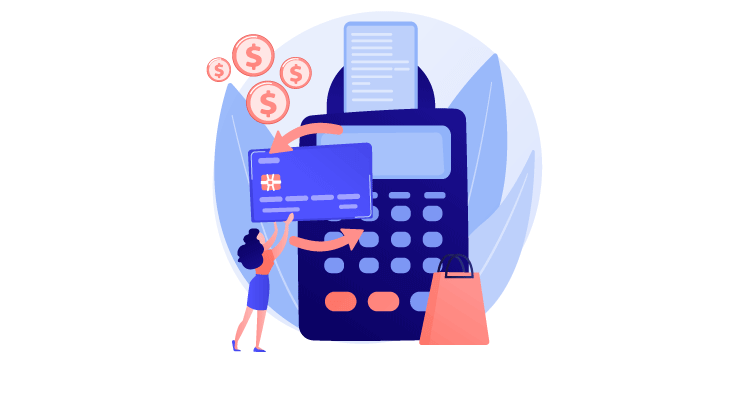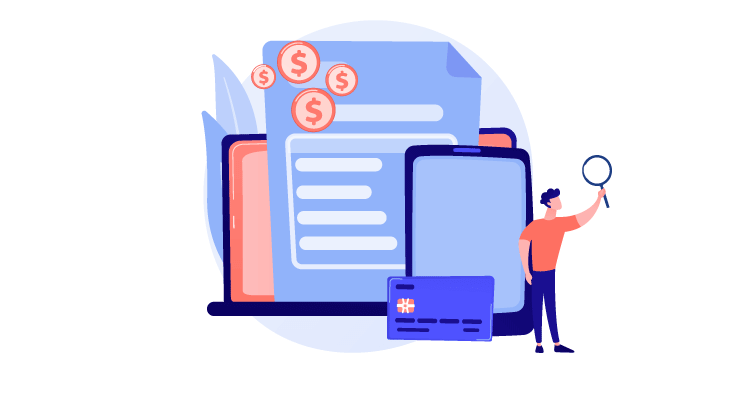With so many lenders available, deciding where you should borrow money might be challenging. Wouldn’t it be great and convenient to work with the same company for the entire term of your loan? If you choose a direct lender, that’s what you can expect.
What Is a Direct Lender?
Direct lenders use their own money for you to borrow. They include banks, credit unions, and other lending companies. When working with a direct lender, everyone you interact with works for the same company. These lenders handle your application process, fund your loan, and receive payments.
Direct Lender vs Third-Party Aggregators Online
Most lending websites you encounter are not direct lenders. Phrases like The publisher of this website is not a lender or representative of any lender or service provider… clearly show that you’re dealing with an aggregator instead of a direct lender online. Other phrases include lender network and multiple lenders.
If you apply to an aggregator, you’ll likely find a flood of unsolicited loan offers in your email inbox from various unknown lenders. Responding to these messages may leave your personal information vulnerable to scammers.
Online third-party lenders can be headquartered outside the United States or within the borders of sovereign Native American enclaves. It could lead to these lenders being out of reach from federal and state regulations, leaving you without recourse against a significant financial obligation.

Why You Should Choose a Direct Lender
There are many benefits to using a direct lender. Let’s take a look at them.
Fast funding
Because direct lenders handle the entire process from start to finish, you benefit from faster approval times and quicker access to your funds. It’s an essential advantage over traditional financial institutions, which can take weeks to review your application.
Safe and secure personal information
When you apply for a loan on a website that is not a direct lender, your personal information could bounce from lender to lender. The more your information is shared, the more likely it is to get into the hands of someone you don’t want to have it. If you apply with a direct lender, your personal information will generally stay with that lender, limiting your chances of identity theft.
Direct customer service
It can be confusing whom you need to contact when you have issues. A direct lender handles all of your questions and loan inquiries. There’s no need to hunt down contact information for multiple websites.
Convenient application
More and more direct lenders operate online. Complete your application from your phone, desktop or mobile app when looking for a loan. Depending on your circumstances, you may get approved and access your funds within minutes.
No unsolicited emails
When you apply for a loan online, there is a chance you could use a lead aggregator. Your contact information could be presented to several different lenders when this happens. Sometimes these emails may include false pre-approvals or jargon that makes you think you may already be approved. Be sure to review these emails carefully before acting on them.

What Should You Look for When Assessing Direct Lenders?
When you research direct lenders, it might be challenging to know where to start. Here’s what you want to consider when figuring out which one is right for you.
The interest rate
Several factors determine your loan’s interest and fees, including your credit history or even the state or city where you live. Always look into your loan’s terms and costs when evaluating different direct lenders. Do not apply for any loan before you have this information.
Straightforward process
The main selling point for getting loans from direct lenders is that they usually provide a simple application process. Remember that the time it takes to verify your financial information, review your application, approve your loan, and send your funds will vary between lenders.
Reputation
Here are a few flags to avoid fraudulent lenders to look for when to avoid potential loan scams.
- Steer clear of lenders that guarantee approval.
- Confirm the registration. The Federal Trade Commission (FTC) requires lenders and loan brokers to register in the states where they conduct business.
- Don’t pay upfront to receive your funding.
- Every lender should have an office. Search Google Maps to ensure it isn’t a fake address.
What to Avoid When Getting a Loan With Direct Lenders?
Knowing what to look for when you evaluate a direct lender is critical. Still, you should also follow some general rules when considering applying for a loan. Here are some things to avoid.
Don’t get a loan for more money than you can afford or need
If you can’t make your payments, you should consider other options. You should only take out a loan for the money you need. Because you can get a larger loan, you shouldn’t feel obligated to use it.
Make your payments on time
Most lenders charge late fees if you do not make your payments on time.
If you struggle because the due date isn’t near your pay date, you can log into your account or call your lender to move it to a more convenient date.
Don’t settle for a loan that doesn’t work for you
It’s best to research direct lenders’ loan products. A longer-term installment loan may be better suited for you than a short-term payday loan because a spread-out payment schedule is easier for you to manage. Always see what’s available, and don’t settle for something that doesn’t work for you.
Know all the potential fees
Read your loan agreement carefully. Thoroughly check the loan terms for any charges such as origination fees, pre-penalty fees, administrative costs, loan processing fees, and anything else. Knowing the amount of the fees charged will help you make the right decision and help you avoid a costly loan.
Conclusion
When seeking a loan, you should take the time to evaluate your options. Reading this guide is a significant first step. However, if you are still undecided, it may be beneficial for you to shop around between banks and direct lenders. With research and comparison shopping, you can find the right loan products.
With so many lenders available, deciding where you should borrow money might be challenging. Wouldn’t it be great and convenient to work with the same company for the entire term of your loan? If you choose a direct lender, that’s what you can expect.
What Is a Direct Lender?
Direct lenders use their own money for you to borrow. They include banks, credit unions, and other lending companies. When working with a direct lender, everyone you interact with works for the same company. These lenders handle your application process, fund your loan, and receive payments.
Direct Lender vs Third-Party Aggregators Online
Most lending websites you encounter are not direct lenders. Phrases like The publisher of this website is not a lender or representative of any lender or service provider… clearly show that you’re dealing with an aggregator instead of a direct lender online. Other phrases include lender network and multiple lenders.
If you apply to an aggregator, you’ll likely find a flood of unsolicited loan offers in your email inbox from various unknown lenders. Responding to these messages may leave your personal information vulnerable to scammers.
Online third-party lenders can be headquartered outside the United States or within the borders of sovereign Native American enclaves. It could lead to these lenders being out of reach from federal and state regulations, leaving you without recourse against a significant financial obligation.

Why You Should Choose a Direct Lender
There are many benefits to using a direct lender. Let’s take a look at them.
Fast funding
Because direct lenders handle the entire process from start to finish, you benefit from faster approval times and quicker access to your funds. It’s an essential advantage over traditional financial institutions, which can take weeks to review your application.
Safe and secure personal information
When you apply for a loan on a website that is not a direct lender, your personal information could bounce from lender to lender. The more your information is shared, the more likely it is to get into the hands of someone you don’t want to have it. If you apply with a direct lender, your personal information will generally stay with that lender, limiting your chances of identity theft.
Direct customer service
It can be confusing whom you need to contact when you have issues. A direct lender handles all of your questions and loan inquiries. There’s no need to hunt down contact information for multiple websites.
Convenient application
More and more direct lenders operate online. Complete your application from your phone, desktop or mobile app when looking for a loan. Depending on your circumstances, you may get approved and access your funds within minutes.
No unsolicited emails
When you apply for a loan online, there is a chance you could use a lead aggregator. Your contact information could be presented to several different lenders when this happens. Sometimes these emails may include false pre-approvals or jargon that makes you think you may already be approved. Be sure to review these emails carefully before acting on them.

What Should You Look for When Assessing Direct Lenders?
When you research direct lenders, it might be challenging to know where to start. Here’s what you want to consider when figuring out which one is right for you.
The interest rate
Several factors determine your loan’s interest and fees, including your credit history or even the state or city where you live. Always look into your loan’s terms and costs when evaluating different direct lenders. Do not apply for any loan before you have this information.
Straightforward process
The main selling point for getting loans from direct lenders is that they usually provide a simple application process. Remember that the time it takes to verify your financial information, review your application, approve your loan, and send your funds will vary between lenders.
Reputation
Here are a few flags to avoid fraudulent lenders to look for when to avoid potential loan scams.
- Steer clear of lenders that guarantee approval.
- Confirm the registration. The Federal Trade Commission (FTC) requires lenders and loan brokers to register in the states where they conduct business.
- Don’t pay upfront to receive your funding.
- Every lender should have an office. Search Google Maps to ensure it isn’t a fake address.
What to Avoid When Getting a Loan With Direct Lenders?
Knowing what to look for when you evaluate a direct lender is critical. Still, you should also follow some general rules when considering applying for a loan. Here are some things to avoid.
Don’t get a loan for more money than you can afford or need
If you can’t make your payments, you should consider other options. You should only take out a loan for the money you need. Because you can get a larger loan, you shouldn’t feel obligated to use it.
Make your payments on time
Most lenders charge late fees if you do not make your payments on time.
If you struggle because the due date isn’t near your pay date, you can log into your account or call your lender to move it to a more convenient date.
Don’t settle for a loan that doesn’t work for you
It’s best to research direct lenders’ loan products. A longer-term installment loan may be better suited for you than a short-term payday loan because a spread-out payment schedule is easier for you to manage. Always see what’s available, and don’t settle for something that doesn’t work for you.
Know all the potential fees
Read your loan agreement carefully. Thoroughly check the loan terms for any charges such as origination fees, pre-penalty fees, administrative costs, loan processing fees, and anything else. Knowing the amount of the fees charged will help you make the right decision and help you avoid a costly loan.
Conclusion
When seeking a loan, you should take the time to evaluate your options. Reading this guide is a significant first step. However, if you are still undecided, it may be beneficial for you to shop around between banks and direct lenders. With research and comparison shopping, you can find the right loan products.


